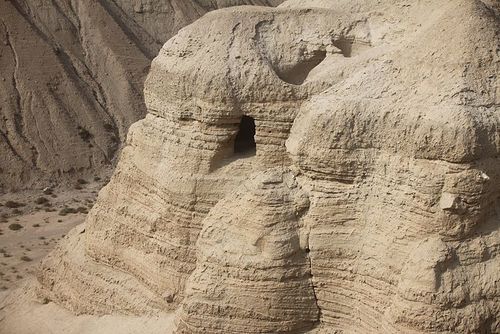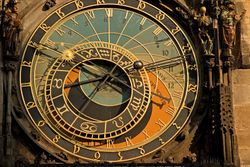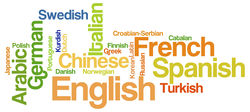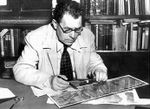Difference between revisions of "Category:Qumran Studies"
| (89 intermediate revisions by the same user not shown) | |||
| Line 1: | Line 1: | ||
{| style="margin-top:10px; background:none;" | |||
| style="background:white; width:65%; border:1px solid #a7d7f9; vertical-align:top; color:#000; padding: 5px 10px 10px 8px; -moz-border-radius: 10px; -webkit-border-radius: 10px; border-radius:10px;" | | |||
<!-- ===================== COLONNA DI SINISTRA ==================== --> | |||
{| cellpadding="2" cellspacing="5" style="width:100%; vertical-align:top; background:transparent;" | |||
{{WindowMain | |||
|title= Qumran Studies (Home Page) | |||
|backgroundLogo= Bluebg_rounded_croped.png | |||
|logo= history.png | |||
|px= 38 | |||
|content= [[File:Qumran_caves.jpg|500px]] | |||
'''Qumran Studies / Research in the Dead Sea Scrolls''' is a field of research in [[Second Temple Judaism]], that specializes in the study of the [[Dead Sea Scrolls]]. | '''Qumran Studies / Research in the Dead Sea Scrolls''' is a field of research in [[Second Temple Judaism]], that specializes in the study of the [[Dead Sea Scrolls]]. | ||
* | * '''[[Topics]]''' : [[Dead Sea Scrolls Editions]] -- [[Dead Sea Scrolls Translations]] -- [[Dead Sea Scrolls Studies]] -- [[Qumran]] -- [[Qumran & Bible]] -- [[Qumran & Christian Origins]] -- [[Qumran & Enoch]] -- [[Qumran & Jesus]] -- [[Qumran & New Testament]] -- [[Qumran & Paul]] -- [[Qumran & John]] -- [[Qumran Archaeology]] -- [[Qumran Community]] | ||
* '''[[Texts]]''' : [[Genesis Apocryphon]] -- [[Hodayot]] -- [[War Scroll]] -- [[Rule of the Community]] -- [[Copper Scroll]] -- [[Damascus Document]] -- [[Melchizedek Scroll]] -- [[Temple Scroll]] -- [[4QInstruction]] -- [[Habakkuk Commentary]] -- [[Halakhic Letter]] (4QMMT) -- [[Rule of the Congregation]] -- [[Isaiah Scroll]] -- [[New Jerusalem Scroll]] -- [[Songs of the Sabbath Sacrifice]] -- [[Thanksgiving Hymns]] (Hodayot) | |||
* '''[[People]]''' : [[Essenes]] -- [[Teacher of Righteousness]] | |||
* [[Qumran Studies | * '''[[Timeline]]''' : [[:Category:Qumran Studies--2010s|2010s]] ([[:Category:Qumran Studies--Top 2010s|Top]])-- [[:Category:Qumran Studies--2000s|2000s]] ([[:Category:Qumran Studies--Top 2000s|Top]]) -- [[:Category:Qumran Studies--1990s|1990s]] ([[:Category:Qumran Studies--Top 1990s|Top]]) -- [[:Category:Qumran Studies--1980s|1980s]] ([[:Category:Qumran Studies--Top 1980s|Top]]) -- [[:Category:Qumran Studies--1970s|1970s]] ([[:Category:Qumran Studies--Top 1970s|Top]]) -- [[:Category:Qumran Studies--1960s|1960s]] ([[:Category:Qumran Studies--Top 1960s|Top]]) -- [[:Category:Qumran Studies--1950s|1950s]] ([[:Category:Qumran Studies--Top 1950s|Top]]) -- [[:Category:Qumran Studies--1940s|1940s]] ([[:Category:Qumran Studies--Top 1940s|Top]]) | ||
== | * '''[[Languages]]''' : [[:Category:Qumran Studies--English|English]] -- [[:Category:Qumran Studies--French|French]] -- [[:Category:Qumran Studies--German|German]] -- [[:Category:Qumran Studies--Italian|Italian]] -- [[:Category:Qumran Studies--Spanish|Spanish]] -//- [[:Category:Qumran Studies--Arabic|Arabic]] -- [[:Category:Qumran Studies--Bulgarian|Bulgarian]] -- [[:Category:Qumran Studies--Chinese|Chinese]] -- [[:Category:Qumran Studies--Croatian|Croatian]] -- [[:Category:Qumran Studies--Czech|Czech]] -- [[:Category:Qumran Studies--Danish|Danish]] -- [[:Category:Qumran Studies--Dutch|Dutch]] -- [[:Category:Qumran Studies--Finnish|Finnish]] -- [[:Category:Qumran Studies--Greek|Greek]] -- [[:Category:Qumran Studies--Hebrew|Hebrew]] -- [[:Category:Qumran Studies--Hungarian|Hungarian]] -- [[:Category:Qumran Studies--Japanese|Japanese]] -- [[:Category:Qumran Studies--Korean|Korean]] -- [[:Category:Qumran Studies--Latin|Latin]] -- [[:Category:Qumran Studies--Norwegian|Norwegian]] -- [[:Category:Qumran Studies--Polish|Polish]] -- [[:Category:Qumran Studies--Portuguese|Portuguese]] -- [[:Category:Qumran Studies--Romanian|Romanian]] -- [[:Category:Qumran Studies--Russian|Russian]] -- [[:Category:Qumran Studies--Serbian|Serbian]] -- [[:Category:Qumran Studies--Swedish|Swedish]] | ||
* '''[[Scholarship]]''' : [[Eleazar Sukenik]] -- [[Edmund Wilson]] -- [[André Dupont-Sommer]] -- [[Gerald Lankester Harding]] -- [[Roland de Vaux]] -- [[Jean Daniélou]] -- [[John C. Trever]] -- [[Yigael Yadin]] -- [[Frank Moore Cross]] -- [[Józef T. Milik]] -- [[John Marco Allegro]] -- [[Ernest-Marie Laperrousaz]] -- [[Géza Vermès]] -- [[Norman Golb]] -- [[John Strugnell]] -- [[Robert H. Eisenman]] -- [[Eugene C. Ulrich]] -- [[Devorah Dimant]] -- [[Emile Puech]] -- [[Emanuel Tov]] -- [[Florentino García Martínez]] -- [[Philip R. Davies]] -- [[John J. Collins]] -- [[Eileen M. Schuller]] -- [[James C. VanderKam]] -- [[Lawrence H. Schiffman]] -- [[Ida Fröhlich]] -- [[Peter W. Flint]] -- [[Esther G. Chazon]] --[[Jodi Magness]] -- [[Hanan Eshel]] -- [[Katell Berthelot]] -- [[George J. Brooke]] -- [[Charlotte Hempel]] | |||
* '''[[Fiction]]''' : [[Qumran Fiction]] -- [[Jesus at Qumran]] -//- [[Eliette Abécassis]] | |||
* '''[[Research Tools]]''' : [[International Organization for Qumran Studies]] -- [[Orion Center for the Study of the Dead Sea Scrolls]] -- [[Séminaire Qumrân de Paris]] -/- [[Dead Sea Discoveries]] -- [[Revue de Qumrân]] -- [[Discoveries in the Judaean Desert]] -/- [[Shrine of the Book]] | |||
* '''[[Cognate Fields]]''' : [[OT Pseudepigrapha Studies]] -- [[Second Temple Studies]] | |||
}} | |||
|} | |||
|<!-- SPAZI TRA LE COLONNE --> style="border:5px solid transparent;" | | |||
<!-- ===================== COLONNA DI DESTRA ==================== --> | |||
| style="width:35%; border:1px solid #a7d7f9; background:#f5faff; vertical-align:top; padding: 5px 10px 10px 8px; -moz-border-radius: 10px; -webkit-border-radius: 10px; border-radius:10px;"| | |||
{| id="mp-right" cellpadding="2" cellspacing="5" style="width:100%; vertical-align:top; background:#f5faff; background:transparent;" | |||
{{WindowMain | |||
|title= [[Timeline]] | |||
|backgroundLogo= Bluebg_rounded_croped.png | |||
|logo= history.png | |||
|px= 38 | |||
|content= [[File:Timeline.jpg|thumb|left|250px]] | |||
'''[[Qumran Studies]]''' : [[:Category:Qumran Studies--2020s|2020s]] -- [[:Category:Qumran Studies--2010s|2010s]] -- [[:Category:Qumran Studies--2000s|2000s]] -- [[:Category:Qumran Studies--1990s|1990s]] -- [[:Category:Qumran Studies--1980s|1980s]] -- [[:Category:Qumran Studies--1970s|1970s]] -- [[:Category:Qumran Studies--1960s|1960s]] -- [[:Category:Qumran Studies--1950s|1950s]] -- [[:Category:Qumran Studies--1940s|1940s]] -- [[:Category:Qumran Studies|Home]] | |||
'''[[Timeline|General]]''' : [[2020s]] -- [[2010s]] -- [[2000s]] -- [[1990s]] -- [[1980s]] -- [[1970s]] -- [[1960s]] -- [[1950s]] -- [[1940s]] -- [[1930s]] -- [[1920s]] -- [[1910s]] -- [[1900s]] -- [[1850s]] -- [[1800s]] -- [[1700s]] -- [[1600s]] -- [[1500s]] -- [[1450s]] -- [[Medieval]] -- [[Timeline|Home]] | |||
}} | |||
{{WindowMain | |||
|title= [[Languages|Research Languages]] | |||
|backgroundLogo= Bluebg_rounded_croped.png | |||
|logo= history.png | |||
|px= 38 | |||
|content= [[File:Languages.jpg|thumb|left|250px]] | |||
''[[Qumran Studies]]'' : [[:Category:Qumran Studies--English|English]] -- [[:Category:Qumran Studies--French|French]] -- [[:Category:Qumran Studies--German|German]] -- [[:Category:Qumran Studies--Italian|Italian]] -- [[:Category:Qumran Studies--Spanish|Spanish]] -//- [[:Category:Qumran Studies--Arabic|Arabic]] -- [[:Category:Qumran Studies--Bulgarian|Bulgarian]] -- [[:Category:Qumran Studies--Chinese|Chinese]] -- [[:Category:Qumran Studies--Croatian|Croatian]] -- [[:Category:Qumran Studies--Czech|Czech]] -- [[:Category:Qumran Studies--Danish|Danish]] -- [[:Category:Qumran Studies--Dutch|Dutch]] -- [[:Category:Qumran Studies--Finnish|Finnish]] -- [[:Category:Qumran Studies--Greek|Greek]] -- [[:Category:Qumran Studies--Hebrew|Hebrew]] -- [[:Category:Qumran Studies--Hungarian|Hungarian]] -- [[:Category:Qumran Studies--Japanese|Japanese]] -- [[:Category:Qumran Studies--Korean|Korean]] -- [[:Category:Qumran Studies--Latin|Latin]] -- [[:Category:Qumran Studies--Norwegian|Norwegian]] -- [[:Category:Qumran Studies--Polish|Polish]] -- [[:Category:Qumran Studies--Portuguese|Portuguese]] -- [[:Category:Qumran Studies--Romanian|Romanian]] -- [[:Category:Qumran Studies--Russian|Russian]] -- [[:Category:Qumran Studies--Serbian|Serbian]] -- [[:Category:Qumran Studies--Swedish|Swedish]] | |||
}} | |||
|} | |||
|} | |||
== Overview== | |||
[[File:Eliezer Sukenik.jpg|thumb|150px|[[Eleazar Sukenik]]]] | |||
*See [[Qumran Studies (1940s)]] | |||
The initial discovery of the first Dead Sea Scrolls from Cave 1 took place between November 1946 and February 1947 by some bedouins. Realizing the antiquity of the scrolls and the importance of the discovery, [[John C. Trever]] on 21 February 1948 photographed, both on black-and-white and standard color film, three of the scrolls. On 11 April 1948, [[Millar Burrows]] announced to the scholarly community the discovery of the scrolls in a general press release; the announcement was followed on April 26 by an analogous press release by [[Eleazar Sukenik]]. A preliminary excavation of the Cave was conducted from 15 February to 5 March 1949 by the Jordanian Department of Antiquities in collaboration with the Ecole Biblique et Archeologique, under the direction of [[Gerald Lankester Harding]] and [[Roland de Vaux]]. The first scholarly reports were published in 1948-49 by [[Eleazar Sukenik]] and [[Gerald Lankester Harding]]. | |||
* See [[Qumran Studies (1950s)]] | |||
In 1950 [[Millar Burrows]], with the assistance of [[John C. Trever]] and [[William H. Brownlee]], published "The Dead Sea Scrolls of St. Mark's Monastery", a first collection of scrolls, without revealing the exact origin and provenience of the manuscripts. Eventually the scrolls from Cave 1 were purchased by the Israeli government. In the meantime, in November 1951, [[Roland de Vaux]] and his team from the ASOR had begun a full excavation of Qumran and the surrounding area. New caves were found and excavated. | |||
The Palestine Archaeological Museum (now commonly known as the Rockefeller Museum) in East Jerusalem became the center for the study of the manuscripts. A team of international scholars, including [[Józef T. Milik]], [[Frank Cross]], [[Patrick Skehan]], [[John Strugnell]], [[Dominique Barthelemy]], [[Jean Starcky]], [[Clause-Hunno Hunzinger]], and [[John Marco Allegro]], began the study of the fragments. | |||
On May 25-27, 1955 the first international conference of Qumran Studies was held in Strasbourg, France. The first collections of Dead Sea Scrolls translated into modern languages appeared in the 1950s, together with numerous introductions and reports, including that published by American journalist [[Edmund Wilson]], that greatly contributed to popularize the importance o fthe discovery even among non-specialists. | |||
In 1957-58, Józef T. Milik and Frank Cross offered the first general assessments of ten years of research on the scrolls. The Essene connection was firmly established and the scholarly interest focused on the theological features of the Qumran community and the implications on Christian Origins. | |||
* See [[Qumran Studies (1960s)]] | |||
* See [[Qumran Studies (1970s)]] | |||
* See [[Qumran Studies (1980s)]] | |||
* See [[Qumran Studies (1990s)]] | |||
* See [[Qumran Studies (2000s)]] | |||
* See [[Qumran Studies (2010s)]] | |||
Latest revision as of 18:58, 19 December 2019
Overview
The initial discovery of the first Dead Sea Scrolls from Cave 1 took place between November 1946 and February 1947 by some bedouins. Realizing the antiquity of the scrolls and the importance of the discovery, John C. Trever on 21 February 1948 photographed, both on black-and-white and standard color film, three of the scrolls. On 11 April 1948, Millar Burrows announced to the scholarly community the discovery of the scrolls in a general press release; the announcement was followed on April 26 by an analogous press release by Eleazar Sukenik. A preliminary excavation of the Cave was conducted from 15 February to 5 March 1949 by the Jordanian Department of Antiquities in collaboration with the Ecole Biblique et Archeologique, under the direction of Gerald Lankester Harding and Roland de Vaux. The first scholarly reports were published in 1948-49 by Eleazar Sukenik and Gerald Lankester Harding.
In 1950 Millar Burrows, with the assistance of John C. Trever and William H. Brownlee, published "The Dead Sea Scrolls of St. Mark's Monastery", a first collection of scrolls, without revealing the exact origin and provenience of the manuscripts. Eventually the scrolls from Cave 1 were purchased by the Israeli government. In the meantime, in November 1951, Roland de Vaux and his team from the ASOR had begun a full excavation of Qumran and the surrounding area. New caves were found and excavated.
The Palestine Archaeological Museum (now commonly known as the Rockefeller Museum) in East Jerusalem became the center for the study of the manuscripts. A team of international scholars, including Józef T. Milik, Frank Cross, Patrick Skehan, John Strugnell, Dominique Barthelemy, Jean Starcky, Clause-Hunno Hunzinger, and John Marco Allegro, began the study of the fragments.
On May 25-27, 1955 the first international conference of Qumran Studies was held in Strasbourg, France. The first collections of Dead Sea Scrolls translated into modern languages appeared in the 1950s, together with numerous introductions and reports, including that published by American journalist Edmund Wilson, that greatly contributed to popularize the importance o fthe discovery even among non-specialists.
In 1957-58, Józef T. Milik and Frank Cross offered the first general assessments of ten years of research on the scrolls. The Essene connection was firmly established and the scholarly interest focused on the theological features of the Qumran community and the implications on Christian Origins.
Pages in category "Qumran Studies"
The following 178 pages are in this category, out of 178 total.
*
- Qumran Studies (Chinese language)
- Qumran Studies (Czech language)
- Qumran Studies (Danish language)
- Qumran Studies (Dutch language)
- Qumran Studies (English language)
- Qumran Studies (French language)
- Qumran Studies (German language)
- Qumran Studies (Hungarian language)
- Qumran Studies (Italian language)
- Qumran Studies (Japanese language)
- Qumran Studies (Polish language)
- Qumran Studies (Portuguese language)
- Qumran Studies (Russian language)
- Qumran Studies (Spanish language)
- Qumran Studies (Swedish language)
~
- Umberto Cassuto (M / Italy, Israel, 1883-1951), scholar
- Eleazar Sukenik (1889-1953), scholar
- Albertus Hendrik Edelkoort (1890-1956), Dutch scholar
- Harold Henry Rowley (1890-1969), scholar
- Salomon A. Birnbaum (1891-1990), scholar
- Johannes Hempel (1891-1964), German scholar
- Godfrey Rolles Driver (1892-1975), scholar
- Edmund Wilson (1895-1972), nonfiction writer
- Cecil Roth (1899-1970), scholar and novelist
- Eugeniusz Dabrowski (1901-1970), Polish scholar
- Karl Elliger (1901-1977), German scholar
- Roland de Vaux (1903-1970), scholar
- Meir Wallenstein (1903-1996), scholar
- Nachman Avigad (1905-1992), scholar
- Hans Bardtke (1906-1975), German scholar.
- Pierre Benoit (1906-1987), scholar
- Giovanni Rinaldi (1906-1994), scholar
- Matthew Black (1908-1994), British scholar
- Eduard Yechezkel Kutscher (M / Slovakia, 1909-1971), scholar
- Alfred R.C. Leaney (1909-1995), scholar
- Giler M. Livshits (1909-1983), Russian scholar
- Johannes P.M. van der Ploeg (1909-2004), scholar
- Jean Starcky (1909-1988), scholar
- Iosif D. Amusin (M / Russia, 1910-1984), scholar
- Miloš Bič (M / Czechia, 1910-2004), scholar
- Pietro Boccaccio (M / Italy, 1910-2006), scholar
- Frederick F. Bruce (1910-1990), scholar
- William S. LaSor (1911-1991), American scholar
- Menahem Mansoor (1911-2001), scholar
- Cezary Kunderewicz (1912-1990), Polish scholar
- Arvid Schou Kapelrud (M / Norway, 1912-1994), scholar
- István Hahn (1913-1984), scholar
- Bastiaan Jongeling (1913-1986), scholar
- Lucetta Mowry (F / United States, 1913-2004), scholar
- Jean Carmignac (1914-1986), scholar
- Bo Ivar Reicke (1914-1987), scholar
- Luigi Moraldi (M / Italy, 1915-2001), scholar
- Chaim Menachem Rabin (1915-1996), scholar
- Klavdia B. Starkova (F / Russia, 1915-2000), scholar
- John C. Trever (1916-2006), scholar
- Otto Betz (1917-2005), scholar
- David Flusser (1917-2000), scholar
- Helmer Ringgren (1917-2012), scholar
- Yigael Yadin (1917-1984), scholar
- Mathias Delcor (1919-1992), Spanish-French scholar
- Emma Susana Speratti Piñero (F / Argentina, 1919-1990), author
- Joseph A. Fitzmyer (1920-2016), American scholar
- Shemaryahu Talmon (1920-2010), scholar
- Anatoliĭ Varshavskiĭ (1920-1990), Russian author
- Franco Michelini Tocci
- Frank Moore Cross (1921-2012), scholar
- Stanislav Segert (M / Czechia, 1921-2005), scholar
- Krister Stendahl (1921-2008), scholar
- Iris Noble (F / Canada, United States, 1922-1986), nonfiction writer
- José O'Callaghan Martínez (1922-2001), scholar
- John Marco Allegro (1923-1988), British scholar
- Maurice Baillet (1923-1998), scholar
- ~ André Caquot (1923-2004), French scholar
- Antonio González Lamadrid (1923-1999), scholar
- Eduard Nielsen (M / Denmark, 1923-2017), scholar
- Hiroshi Shinmi (M / Japan, 1923-1979), scholar
- José María Casciaro Rodríguez (1924-2004), scholar
- Bertil E. Gärtner (1924-2009), scholar
- Paul Heger (1924-2018), Canadian-Jewish scholar
- Ernest-Marie Laperrousaz (1924-2013), French scholar
- Géza Vermès (M / Hungary, Britain, 1924-2013), scholar
- Ben Zion Wacholder (1924-2011), scholar
- Georgios Gratseas (b.1926), scholar
- Jan Alberto Soggin (M / Italy, 1926-2010), scholar
- James A. Sanders (M / United States, 1927-2020), scholar
- Witold Tyloch (1927-1990), Polish scholar
- Adam S. van der Woude (1927-2000), scholar
- Norman Golb (1928-2020), scholar
- Magen Broshi (M / Israel, 1929-2020), scholar
- Benedikt Otzen (b.1929), Danish scholar
- Marc Philonenko (1930-), scholar
- Paolo Sacchi (M / Italy, 1930), scholar
- John Strugnell (1930-2007), scholar
- Christoph Burchard (M / Germany, 1931-2020), scholar
- Johann Maier (1933-2019), scholar
- André Paul (1933-), scholar
- Hartmut Stegemann (1933-2005), scholar
- Masao Takahashi (M / Japan, 1933), scholar
- George W.E. Nickelsburg (1934-), scholar
- Stanislaw Medala (M / Poland, 1935), Polish scholar
- Robert H. Eisenman, scholar
- Géza Komoróczy (b.1937), Hungarian scholar
- Margarita M. Elizarova (F / Russia, 1938-1978), scholar
- Michael A. Knibb (M / Britain, 1938), scholar
- Eugene C. Ulrich (1938-), scholar
- Santiago Ausín Olmos (1939-), scholar
- Devorah Dimant (b.1939), scholar
- Francis Schmidt (b.1939), scholar
- Klaus Berger (M / Germany, 1940-2020) scholar
- James H. Charlesworth (1940-), scholar
- Gian Luigi Prato (b.1940), scholar
- Roland Bergmeier (1941-), scholar
- Emanuel Tov (1941-), scholar
- Florentino García Martínez (1942-), scholar
- Zdzislaw Jan Kapera (b.1942), Polish scholar
- André Lemaire (b.1942), scholar
- Raija Sollamo (F / Finland, 1942), scholar
- Angelo Vivian (M / Italy, 1942-1991), scholar
- Philip R. Davies (1945-2018), scholar
- John J. Collins (1946-), scholar
- Ignacio Gómez de Liaño (1946-), scholar
- Mogens Müller (M / Denmark, 1946), scholar
- Eileen M. Schuller (1946-), scholar
- James C. VanderKam (M / United States, 1946), scholar
- Lawrence H. Schiffman (M / United States, 1948), scholar
- Ida Fröhlich (F / Hungary, 1949), scholar
- Martin Abegg (1950-), scholar
- Carol A. Newsom (F / United States, 1950), scholar
- Christophe Batsch (b.1951), scholar
- Peter W. Flint (M / Canada, 1951-2016), scholar
- Esther G. Chazon (1953-), scholar
- Jodi Magness
- Adolfo Roitman (1957-), scholar
- Gabriele Boccaccini (b.1958), Italian-American scholar
- César Vidal Manzanares (M / Spain, 1958), writer, novelist
- Igor R. Tantlevskij (M / Russia, 1961), Russian scholar
- Jörg Frey (b.1962), scholar
- Giovanni Ibba (M / Italy, 1962), scholar
- Alexander Schick (b.1962), nonfiction writer
- Cecilia Wassen
- Henryk Drawnel (b.1963), Polish scholar
- Piotr Muchowski (b.1963), Polish scholar
- Katharina Galor
- Jaime Vázquez Allegue (1968-), scholar
- Eliette Abécassis (b.1969), French-Jewish novelist
- Daniel Stökl Ben Ezra (1970-), scholar
- Katell Berthelot, scholar
- Peter Porzig (M / Germany, 1971), scholar
- Géza G. Xeravits (M / Hungary, 1971-2019), scholar
- Simone Paganini (b.1972), scholar
- David Hamidovič
- Mladen Popović, scholar
- Nóra Dávid (b.1981), scholar
- Elio Jucci
- Timothy H. Lim, scholar
- Jean Pouilly, scholar
- George J. Brooke
- Jesús Cantera Ortiz de Urbina, scholar
- Lorenzo DiTommaso, scholar
- Torleif Elgvin, scholar
- Maxine Grossman, scholar
- Francisco Jiménez Bedman, scholar
- Dennis Mizzi
- Elisha Qimron, scholar
- Magnus Riska
- Eibert J.C. Tigchelaar, scholar
- Julio Trebolle Barrera, scholar
- Luis Vegas Montaner, scholar
Media in category "Qumran Studies"
The following 10 files are in this category, out of 10 total.
- 1950 * Burrows.jpg 371 × 499; 24 KB
- 1958 * Burrows.jpg 337 × 499; 28 KB
- 1958 * Cross.jpg 300 × 458; 34 KB
- 1961 * Black.jpg 232 × 350; 28 KB
- 1964 * Brownlee.jpg 334 × 499; 37 KB
- 1976 * Milik.jpg 471 × 640; 17 KB
- 1984-E * Stone.jpg 333 × 499; 21 KB
- 1995 * Golb.jpg 355 × 499; 33 KB
- 1998 * Boccaccini.jpg 336 × 499; 49 KB
- 2005-E * Boccaccini.jpg 333 × 499; 39 KB













